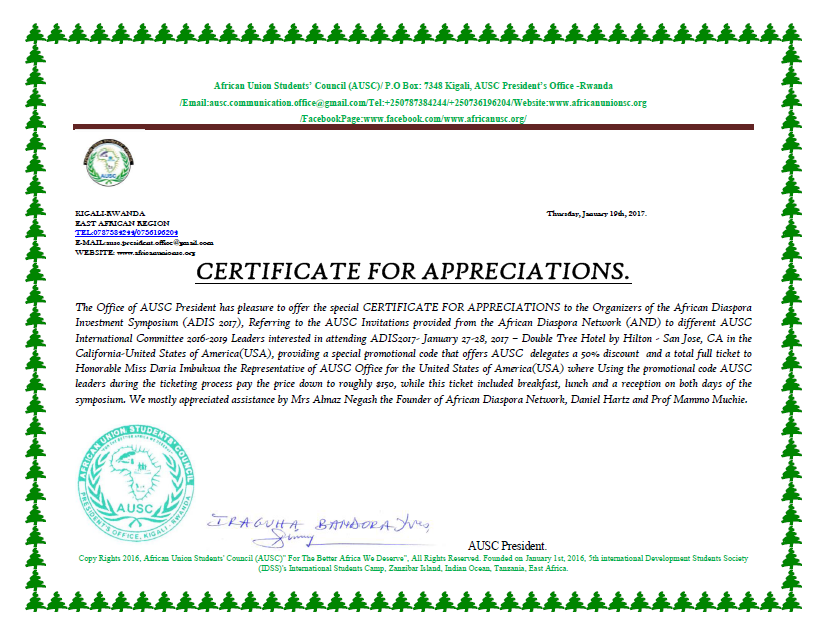Has the pan-African hour come? A review of The Making of the Africa-Nation
President Thabo Mbeki and the Ethiopian professor, Mammo Muchie, are conjoined by similar concerns. They are aligned by their strong preoccupations with notions of the African, the African-Nation, pan-Africanism, African renaissance and African transformation. Perhaps not since Kwame Nkrumah have we had a systematic focus on pan-Africanism and its possibilities for articulating a broad range of African identities, including Diasporan ones under a unified force. And both Mbeki and Muchie are very serious about their common project.

Pan-Africanism was an important ideological response to centuries of racism and cultural and sociopolitical disempowerment. Muchie’s project is one that attempts a resurrection of pan-Africanism as an ideology of liberation and agency in the era of contemporary globalisation. His work in this regard connects with Mbeki’s political role as one of the most important supporters of pan-Africanism today.
Muchie’s introductory chapter is entitled “Has the Pan-African Hour Come?” From the look of things, pan-Africanism is definitely high on the African political agenda. For instance, in October 2014, the first meeting of intellectuals of Africa and the Diaspora took place in Dakar, Senegal, Present at the event were the heads of state of countries such as Nigeria, Cape Verde, Mali, Uganda, South Africa and the host nation, Senegal.
The conference discussed, among other things, pan-Africanism in the 21st century; the contribution of intellectuals of Africa and the diaspora to the deepening and strengthening of African integration in the context of the 21st century; African identity in a multicultural context; Africa’s place in the world; Africa’s relations with its diaspora; and science and technology.
These are all themes that are given prominent attention in the Muchie edited volume. He agrees that the question of a single African idea or identity for the entire African continent is usually problematic.
The author, V. Y. Mudimbe’s major work, The Invention of Africa (1988), is one of the most famous interrogations of the problematic status of Africanity. Paulin J. Hountondji, the Beninoise philosopher, has also debunked what he termed “the myth of unanimism” in relation to the question of African identities. By extension, there are indeed very significant moments in contemporary African philosophy that attest to the continent’s heterogeneity.
Muchie concurs that there are many African identities but he argues that this should not prevent Africans from forging a collective vision for the continent just as the Indians have been able to do. Contemporary pan-Africanism, in other words, should not be a platform for ethnocentricism.

Muchie asserts that “the right to the universal or the African does not have to challenge the right to remain different, speak different languages and worship different deities. It can complement it and in fact it can enrich it, provided that the dialectic between specificity and universality is resolved in favour of producing the national nucleus for creating a sustainable unification of Africa”.
I have concentrated on Muchie rather extensively because he alone has five chapters in the volume. Apart from theoretical reflections on pan-Africanism, there are also chapters that depart from this trajectory. In her chapter, Silvia Bercu argues that pan-Africanism requires a new humanism while Chen Chimutengwende calls for a redress of economic inequality and another struggle for liberation in order to make contemporary pan-Africanism more meaningful.

The relations between pan-Africanism and pan-Arabism are also explored. Akram Hawas navigates the contours and history of those relations in the light of efforts by Egypt’s Gamal Abdel Nasser and Libya’s Muammar AlGathafi. Part of AlGathafi’s approval of pan-Africanism, Hawas points out, comes from his dissatisfaction with Arab nationalism.
B. F. Bankie’s contribution identifies the Arab complicity in the Atlantic slave trade as a possible obstacle to cooperative Arab-African relations. For those relations to be cordial, he advocates a revisitation of the trauma that the slave trade was for purposes of atonement. Jacques Hersh explores the connections between Afro-pessimism and Afro-optimism and it is interesting to note that these issues have been important preoccupations in Gallic intellectual circles.
Finally, Mammo Muchie looks into the aims of the New Partnership for Africa’s Development (Nepad) and concludes that the project would only be viable if the problems of financial indebtedness to the Bretton Woods institutional order and general dependency are addressed.
By putting together this volume (and by his wide-ranging contributions to it), Muchie has positioned himself as probably the most assiduous theorist of pan-Africanism of the present. The volume obviously has many values; it is first of all a theoretically engaging tome that takes on, with a great deal of confidence, an important ideological configuration in the evolution of modern Africa. It can also serve as the intellectual manifesto of President Mbeki’s engrossing continental project.
If we are truly concerned about African agency and subjectivity in the age of contemporary globalisation, then we ought to take The Making of the Africa-Nation very seriously.
Review by Sany Osha.
Approved on Tuesday January 31, 2017
by
AUSC President
Mr Iraguha Bandora Yves.




























































